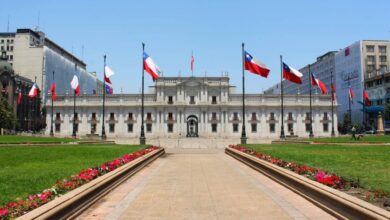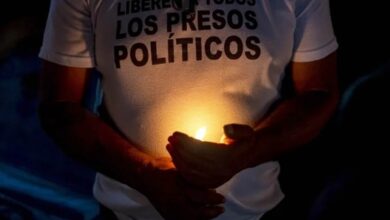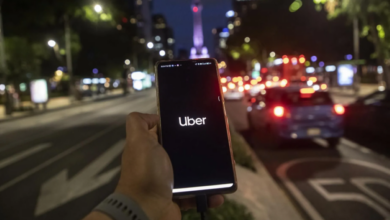Colombia: What will happen after the capture or death of alias “Guacho”?
The drug trafficking's fight continues against one of the most recognized faces of FARC's dissidence

If the military operation against alias "Guacho" in Tumaco, in which more than 3,000 soldiers, between Ecuadorians and Colombians, is confirmed it would mean an important advance in the fight against drug trafficking.
Leer en español: Colombia: ¿Qué significaría la captura o muerte de alias “Guacho”?
The more than 209,000 hectares of coca crops in Colombia, according to the United States Government, could be reduced and replaced after the capture or death of alias "Guacho". For Nariño, the area currently controlled by the dissident of the FARC, before the death of its maximum enemy Víctor David Segura Palacios, who died in clashes with the authorities, is a key region for drug trafficking that has the largest amount of drug crops from all over the country, El Tiempo claims.
In 2016, the area commanded by Palacios (municipalities of La Balsa, Llorente, Guayacana and Restrepo, in Nariño), according to the latest UN report, had more than 23,148 hectares of coca plants.
Over time, the blow to "Guacho" would allow the Duque Government to replace those crops with others that serve the peasants of the area, seize it and provide security for those who have lived for years the horror of drug trafficking, which today has an influence of Mexican cartels such as the ones from Sinaloa and Jalisco.
However, the fight against drug trafficking – either "Guacho" is death or captured- would continue against new dissident leaders of the Farc that replace "Guacho". The objective of the Government, in addition, should be to combat the underlying problems that lead to the drug business as the neglect of the State in some areas of the country, the lack of health, education, access roads, among other social realities, that end up turning the populations that suffer such situations IGNORE INTO easy victims of armed groups and drug cartels.
Who is alias "Guacho"?
From being a humble Ecuadorian merchant, Walter Patricio Arizala, in 10 years, he became the leader of drug trafficking in southern Colombia and is one of the greatest threats to security in the department of Nariño.
In 2016, when he declared himself in rebellion with the peace process made by Juan Manuel Santos with the FARC -now a Colombian political party-, he became the most visible face of the dissent that the extinct armed group left behind. His time in that armed group began in 2007 when Daniel Aldana column of the Farc recruited him in Ecuador.
Also read: How is FARC's political party going after its first year?
"We did not accept the peace process, it was not because we did not agree, but because there was an inequality in the head of the guerrillas and the troops, and we saw that it was not necessary to continue in a process in which they are not fulfilling us" said Guacho in an interview for RCN channel.
According to the record announced by the Attorney General, Néstor Humberto Martínez, "Guacho" has control over the territory with the most coca leaf grown in Colombia, which is Alto and El Bajo Mira, in Nariño. This dissident has contact with drug cartels in Mexico and a weekly income of more than 25 million dollars.
With 250 man of confidence, "Guacho" created the Oliver Sinisterra front, which bears the name of a comrade in arms with whom "Guacho" fought in the past, says Semana.
The crime of alias "Guacho" that shook Latin America
"With deep concern, I regret to report that twelve hours have passed and we have no proof of life and unfortunately we have information that confirms the murder of our compatriots," Ecuadorian President, Lenin Moreno, announced the death of journalist Javier Ortega, the photographer Paúl Rivas and the driver Efraín Segarra, workers of the newspaper El Comercio, at the hands of the dissidence commanded by alias "Guacho". This crime shook Ecuador and Latin America in general.
Read also: Being a journalist in Latin America is the most dangerous job
The leaders of Peru, Colombia, Bolivia, the Ministry of Foreign Affairs of Spain and the executive director of Human Rights Watch's division in America, José Miguel Vivanco, expressed their rejection of what happened.
To relatives of the journalistic team of @elcomerciocom , to all of Ecuador, to the president @Lenin Moreno, we reiterate my solidarity and that of the Colombian people. We condemn these deplorable facts. From experience when countries work together, criminals always fall.
– Juan Manuel Santos (@JuanManSantos) April 13, 2018
Our solidarity with President @ Lenin , the relatives and the Ecuadorian people for the terrible murder of the three journalists. I convey the support of all of Peru at this difficult moment.
– Martín Vizcarra (@MartinVizcarraC) April 13, 2018
We condemn the murder of the journalist brothers of Ecuador in Colombia. I can not believe that there are human beings who are enemies of life, capable of killing innocents. We expect justice. All our solidarity to the Ecuadorian people and relatives of the victims. A lot of strength! pic.twitter.com/uDbyyUp4cz
– Evo Morales Ayma (@evoespueblo) April 13, 2018
Spain expresses its most resounding condemnation for the murder of the three members of the team of the newspaper " #ElComercio " of # Quito who were kidnapped on March 26 in the province of Esmeraldas. @CancilleriaEc
– Foreign (@MAECgob) April 13, 2018
My greatest solidarity with the relatives of the Ecuadorian communicators kidnapped before the confirmation of his death.
Here our pronouncement: pic.twitter.com/Y6SFMuAJn6
– José Miguel Vivanco (@JMVivancoHRW) April 13, 2018
LatinAmerican Post I Edwin Guerrero Nova
Translated from "Colombia: ¿Qué significaría la captura o muerte de alias “Guacho”?"
* The opinion of the editor does not represent that of this newspaper





